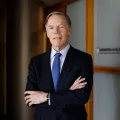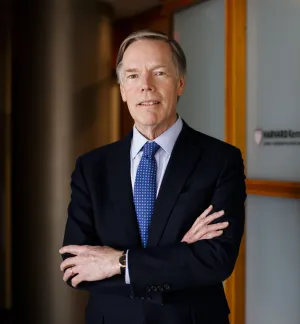When the Cold War ended, more than a few European and American officials predicted that Turkey would decline rapidly in geopolitical significance. Without the Soviet threat, they said, Turkey’s role as a bulwark against communist expansion was finished and it was destined to be a second-tier power in the 21st century.
That prediction, of course, could not have been more shortsighted. During the past decade, Turkey has become the rising power in Europe, arguably the world’s most influential Muslim country and a dynamic inspiration for young Arab reformers. Turkey is the only European country that has grown in power since the financial crisis and the start of the Arab uprisings. While European economic fortunes have contracted, Turkey has one of the fastest growing global economies. Turkey may even now be more powerful in the Middle East than Germany, France, and the United Kingdom. This is all supremely ironic for a country long excluded from positions of power in NATO and which has had the door to the European Union slammed shut in recent years.
Turkey’s rise has been engineered by its brilliant, proud, and often prickly prime minister, Recep Tayyip Erdogan. A devout Muslim, Erdogan has revolutionized Turkish politics by challenging his country’s historic commitment to secularism and introducing a greater role for Islam in Turkish politics. Under his leadership, Turkey was, for a time, the only country that managed decent relations with all the regional powers, including Israel, Iran, Iraq, and Syria. Long a geographic bridge between East and West, Turkey under Erdogan became the go-to marriage counselor in the violent and unstable Middle East — mediating secret talks between Israel and Syria, building a close strategic relationship with the Israelis, and nudging Iran to be more reasonable on the nuclear issue.
During the last two years, however, Erdogan has shifted dramatically from honest broker to a more aggressive, independent, and often unpredictable course — breaking relations with Israel over the Palestinian issue, spurning the Europeans, and, most surprisingly this year, turning his back on his former friend, Syrian dictator Bashar al Assad and calling openly for revolution against his regime.
Turkey’s relationship with the United States has been no less controversial. Long a stolid and unquestioning supporter of America during the Cold War, Turkey has become a mercurial and more dyspeptic ally since 9/11. The Turkish Parliament refused to permit American troops to invade Iraq from Turkish soil in 2003. In recent years, Turkey has blocked US efforts on Cyprus and prevented closer NATO ties with the European Union. Erdogan has also turned worrisomely authoritarian at home, imprisoning large numbers of former military leaders without charge and restricting press freedoms. Indeed, when the subject of Turkey is raised in government offices across Europe and even in Washington, officials will often roll their eyes and complain about just how difficult it is to work with newly confident Turkey.
While many in Washington complain about Turkey, however, President Obama appears to be an exception. He has formed a close and trusting relationship with Erdogan over the last three years. Obama made an early visit to Istanbul in 2009 to show his respect for Erdogan and Turkey’s new role. He later convinced Erdogan to host a new NATO missile defense system and Turkey has become the lead US confidant on Syria. More recently, Obama asked Erdogan to take a private message to Iran’s Supreme Leader, Ali Khamenei, on the eve of new international talks on the nuclear issue.
Some Turkey experts believe Obama has bet too much on Erdogan, whose lofty foreign policy ambitions have not always produced results and who is battling close American friends in the Turkish military.
Obama’s strategy is, indeed, not without risks. But global power balances are shifting rapidly, and the United States can no longer expect unquestioned fealty from its allies. Europe made a historic mistake in saying no to Turkish membership in the EU and losing influence in Ankara. Despite notable public disagreements, Obama has managed to earn Erdogan’s trust and that is very much in our favor. In this sense, the United States may be playing a far smarter game by keeping unpredictable Turkey close as a force multiplier to advance our many interests in the ever challenging Middle East.
Burns, Nicholas. “The rise of Turkey as a superpower.” The Boston Globe, April 27, 2012





